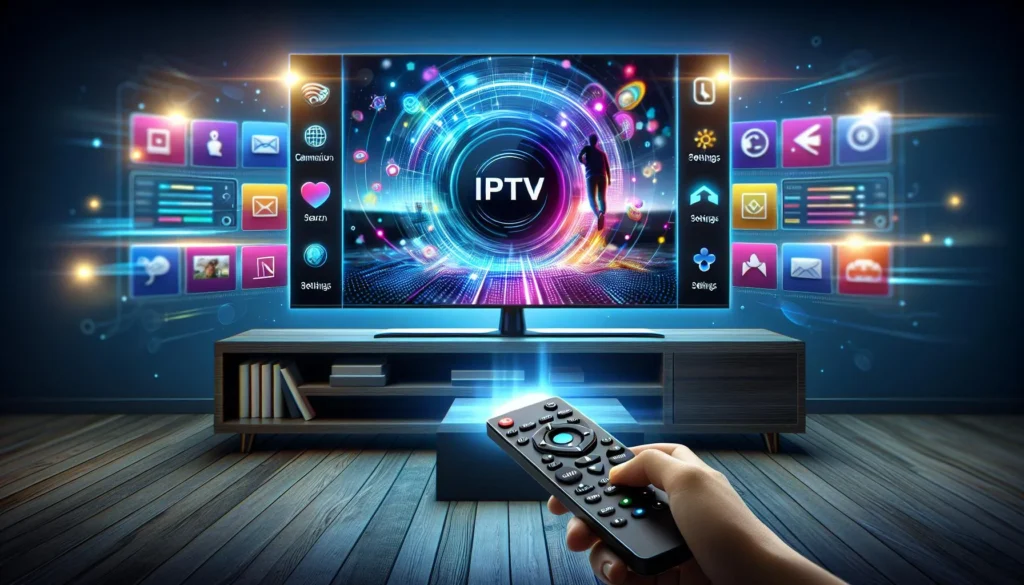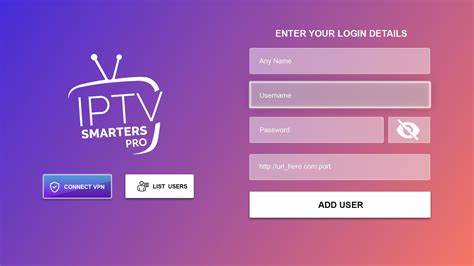Table of Contents
Introduction to IPTV Server
In recent years, IPTV systems have revolutionized how we watch TV. Unlike traditional cable TV, which relies on physical cables, IPTV (Internet Protocol Television) streams content over the internet. This technology has rapidly gained popularity due to its flexibility, cost-effectiveness, and access to a wide range of content.

What is an IPTV Server?
An IPTV system is a device or software that stores and delivers television programming and on-demand content to users via the internet. It acts as the backbone of an IPTV setup, receiving content from various sources, processing it, and then streaming it to end-users.
Typically, IPTV systems are used to stream live TV, movies, shows, and even special events like sports. These platforms can either deliver content in real-time (live TV) or offer a library of content for viewers to access at their convenience (Video on Demand or VOD).
Why Are IPTV Systems Gaining Popularity?
The rise of IPTV platforms is directly linked to the increasing demand for on-demand, customizable, and affordable content. Here are some reasons for their growing appeal:
- Cost-Effectiveness: IPTV eliminates the need for expensive cable packages, offering a cheaper way to access content.
- Flexibility: Users can watch content whenever they like, and on multiple devices.
- Global Access: IPTV systems allow access to content from all over the world, offering international channels and shows.
How Does an IPTV System Work?
Understanding how an IPTV system works is essential to fully appreciate its capabilities. At its core, IPTV works on a simple principle: it sends video content from a server to a client (the viewer) via the internet.
Understanding the IPTV System Architecture
An IPTV setup consists of several components that work together to deliver seamless streaming. The architecture includes:
- Content Acquisition: Content is sourced from satellite, cable, or even recorded video files.
- Encoding: The acquired content is encoded into a digital format.
- Transmission: The encoded content is transmitted through a network to the IPTV server.
- Storage: Some content is stored on the system for later viewing (VOD), while other content is streamed live.
- Client Devices: End users access IPTV content via devices like smart TVs, smartphones, tablets, or computers.
Technical Requirements for Setting Up an IPTV System
Setting up an IPTV service requires both hardware and software. Here’s an overview:
Hardware:
- A high-performance server with sufficient processing power (CPU and RAM).
- Storage space for VOD content.
- A stable, high-speed internet connection to ensure smooth streaming.
Software:
- Various IPTV software solutions (e.g., Xtream Codes, Plex) for managing and delivering content.
- Streaming protocols like HLS, MPEG-DASH, and RTSP.
How Does the IPTV System Deliver Content?
The IPTV setup delivers content using several protocols:
- HTTP Live Streaming (HLS): Used for delivering live video content.
- MPEG-DASH: A protocol supporting adaptive bitrate streaming.
- RTSP: Ideal for real-time streaming with minimal delay.
Types of IPTV Systems
There are several types of IPTV systems, each designed to cater to specific needs. Here’s an overview:
Live IPTV Systems
These systems deliver real-time content like news, sports, and live events. They’re ideal for platforms that want to provide live streaming with minimal delay.
Video on Demand (VOD) IPTV Systems
VOD services allow users to watch content on-demand. These setups store a large library of movies, shows, and other content, which users can select and watch at their convenience.
Hybrid IPTV Systems
Hybrid services combine both live TV and VOD capabilities. These setups offer flexibility, catering to users who want the best of both worlds.
Setting Up an IPTV Service
Setting up an IPTV system involves several steps. Here’s a general guide:
- Choose IPTV Server Software: Some options include:
- Xtream Codes (Paid)
- Plex (Free and paid versions)
- Kodi (Free)
- Step-by-Step Setup:
- Step 1: Select your hardware and install the necessary software.
- Step 2: Configure server settings, including network and firewall rules.
- Step 3: Add content (live TV or VOD).
- Step 4: Set up streaming protocols and test the connection.
- How to Stream IPTV Content on Different Devices: To stream content across various devices, use compatible apps like:
- VLC Media Player
- Perfect Player
- STB Emulator
Best IPTV Server Providers

For those seeking professional IPTVsolutions, several providers offer reliable services. These providers typically provide a wide range of channels, customizable features, and high-quality streaming.
| Provider | Pros | Cons |
|---|---|---|
| Xtream Codes | High-quality streaming, customizable | Paid software, requires technical expertise |
| Plex | Easy setup, user-friendly interface | Limited live TV support |
| IPTV Smarters | Affordable, supports many devices | May have content limitations |
Benefits of Using an IPTV System
IPTV services offer several key benefits, making them a top choice for viewers:
- Cost Savings: IPTV is much cheaper than traditional cable or satellite services.
- Access to Global Content: Watch channels from around the world.
- Customization: Select the channels and content you want to view.
- High-Quality Streaming: Enjoy HD and 4K quality content.
Troubleshooting IPTV Issues
While IPTV services are generally reliable, some common issues may arise:
- Slow Streaming: Ensure your internet connection meets the required speed for high-definition content.
- Buffering: Reduce the quality of the stream or switch to a wired connection.
- Audio/Video Sync Issues: Typically resolved by adjusting the settings in your IPTV player.
Legal Considerations for IPTV Services
IPTV services are legal as long as the content being streamed is licensed. Be sure your IPTV service complies with copyright laws to avoid legal issues.
Alternatives to IPTV Services
While IPTV is an excellent choice, there are alternatives worth considering:
- Satellite and Cable TV: Traditional but often more expensive.
- OTT Streaming Services: Platforms like Netflix, Hulu, and Amazon Prime provide on-demand content but might lack live TV options.
FAQ
What is an IPTV Server?
An IPTV server is a system that streams television content over the internet. It allows users to watch TV shows, movies, and live events by transmitting content digitally through an internet connection. Unlike traditional cable TV, IPTV uses an IP-based network for delivering content.
How Do IPTV Servers Work?
IPTV servers work by receiving and encoding content from various sources (such as satellite or recorded video) and then delivering it to end-users through streaming protocols like HLS, MPEG-DASH, and RTSP. The content can either be streamed live or made available for on-demand viewing, depending on the type of IPTV server used.
What Are the Different Types of IPTV Servers?
There are three main types of IPTV servers:
Live IPTV Servers: Provide real-time streaming of live TV content.
VOD (Video on Demand) Servers: Allow users to access a library of content to watch at their convenience.
Hybrid IPTV Servers: Combine both live TV and VOD features to offer a more flexible viewing experience.
Do I Need Special Equipment to Set Up an IPTV Server?
Yes, setting up an IPTV server typically requires:
A powerful server with sufficient storage and processing power.
A stable, high-speed internet connection.
IPTV server software (e.g., Xtream Codes, Plex) for managing and delivering content.
Can I Stream IPTV on Multiple Devices?
Yes, IPTV servers allow users to stream content across a wide range of devices, including smart TVs, smartphones, tablets, and computers. You can use apps like VLC Media Player, Perfect Player, or STB Emulator to access IPTV content on your devices.
How Much Does an IPTV Server Cost?
The cost of an IPTV server can vary depending on several factors, including the software you choose, the number of channels, and the provider. For example:
Open-source software like Kodi is free, but paid options like Xtream Codes may require a subscription.
The price for IPTV subscriptions varies widely, with some providers offering plans as low as $10/month.
Is IPTV Legal?
IPTV itself is legal as long as the content being streamed is properly licensed. However, some IPTV services offer unlicensed content, which can be illegal. Always ensure that your IPTV server or provider complies with copyright laws.
What Are the Benefits of Using an IPTV Server?
Using an IPTV server offers several benefits:
Cost-effectiveness: IPTV is often cheaper than traditional cable or satellite TV.
Customization: Users can select their own channels and content.
Global Access: IPTV allows users to access content from all over the world.
High-quality streaming: Enjoy HD or 4K content with minimal buffering.
What Should I Do if My IPTV Server Is Buffering?
If you’re experiencing buffering issues, here are a few things you can try:
Check your internet speed to ensure it meets the requirements for streaming.
Lower the streaming quality to reduce the demand on your connection.
Use a wired connection instead of Wi-Fi for a more stable experience.
How Can I Ensure My IPTV Server Runs Smoothly?
To ensure your IPTV server operates without issues:
Regularly maintain your server by updating software and checking hardware.
Make sure your internet connection is fast and reliable.
Use high-quality IPTV software that supports the latest streaming protocols.




